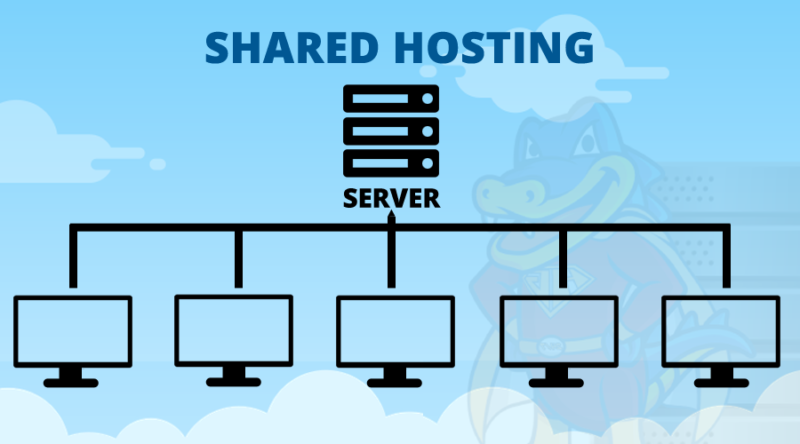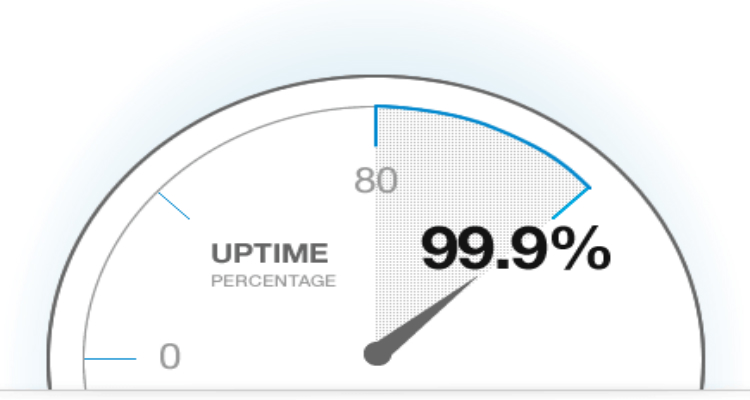Choosing the right web hosting provider is crucial for the success of your website. With so many hosting options available, it can be overwhelming to determine which one is the best fit for your needs. In this article, we’ll discuss how to choose your hosting smartly and make an informed decision.
Why Is Choosing the Right Hosting Important?
Your web hosting provider is responsible for keeping your website up and running, ensuring fast loading times, and providing security for your website. A poor hosting choice can result in slow loading times, frequent downtime, and even security breaches. This can lead to a negative user experience and ultimately affect your website’s search engine ranking.
Types of Hosting
Before we dive into how to choose the right hosting, let’s first understand the different types of hosting available.

Shared hosting is the most common and affordable type of hosting. With shared hosting, your website shares server resources with other websites. This means that your website’s performance can be affected by the traffic and activities of other websites on the same server.
Virtual Private Server (VPS) Hosting
VPS hosting is a step up from shared hosting. With VPS hosting, your website still shares a server with other websites, but it has its own dedicated resources. This means that your website’s performance is less likely to be affected by other websites on the same server.
Dedicated Hosting
Dedicated hosting is when you have an entire server dedicated to your website. This means that you have full control over the server and its resources. Dedicated hosting is the most expensive option but offers the highest level of performance and security.
Cloud Hosting
Cloud hosting is a newer type of hosting that uses multiple servers to host your website. This means that your website can handle high levels of traffic and has built-in redundancy in case one server fails. Cloud hosting is scalable and can be a good option for websites with high traffic or unpredictable traffic spikes.
Factors to Consider When Choosing Hosting
Now that we understand the different types of hosting, let’s look at the factors you should consider when choosing your hosting provider.
Reliability and Uptime Guarantee

One of the most important factors to consider is the reliability and uptime guarantee of the hosting provider. Look for a provider that offers at least a 99.9% uptime guarantee. This means that your website will be up and running for the majority of the time, ensuring a positive user experience.
Speed and Performance
The speed and performance of your website are crucial for user experience and search engine ranking. Look for a hosting provider that offers fast loading times and has servers in close proximity to your target audience. This will ensure that your website loads quickly for your visitors.
Security Features
Security is a top priority for any website. Look for a hosting provider that offers security features such as SSL certificates, firewalls, and regular backups. This will help protect your website from cyber threats and ensure the safety of your data.
Scalability
As your website grows, you may need to upgrade your hosting plan to accommodate higher levels of traffic. Look for a hosting provider that offers scalability options, such as the ability to upgrade to a VPS or dedicated server when needed.
Customer Support

In case of any issues or questions, it’s important to have reliable customer support from your hosting provider. Look for a provider that offers 24/7 support through various channels such as live chat, phone, and email.
Pricing and Plans
Pricing is also an important factor to consider when choosing your hosting provider. While it may be tempting to go for the cheapest option, keep in mind that you often get what you pay for. Look for a provider that offers competitive pricing for the features and resources you need.
How to Choose the Right Hosting Provider
Now that you know what to look for in a web hosting provider, here are some steps to help you choose the right one for your website.
Determine Your Needs
The first step is to determine your website’s needs. Consider factors such as the type of website you have, the amount of traffic you expect, and any special requirements you may have. This will help you narrow down your options and choose a hosting plan that meets your needs.
Research and Compare Providers
Do your research and compare different hosting providers. Look for reviews and ratings from other users to get an idea of their experiences. Pay attention to the features and resources offered by each provider and compare them to your needs.
Check for Reliability and Uptime Guarantee
As mentioned earlier, reliability and uptime guarantee are crucial factors to consider. Look for providers that offer at least a 99.9% uptime guarantee and have a good track record of reliability.
Consider the Location of Servers
If your target audience is located in a specific region, it’s important to choose a hosting provider with servers in close proximity to that region. This will ensure faster loading times for your visitors.
Look for Security Features
Security should be a top priority when choosing a hosting provider. Look for providers that offer SSL certificates, firewalls, and regular backups to protect your website from cyber threats.
Test Customer Support
Before making a decision, test the customer support of the hosting providers you’re considering. This will give you an idea of their response time and the quality of their support.
Consider Scalability and Pricing
Finally, consider the scalability options and pricing of the hosting providers. Choose a provider that offers scalability options and competitive pricing for the features and resources you need.
Conclusion
Choosing the right web hosting provider is crucial for the success of your website. By considering factors such as reliability, speed, security, and customer support, you can make an informed decision and choose a hosting provider that meets your website’s needs. Remember to do your research and compare different providers before making a decision. With the right hosting, your website can thrive and provide a positive user experience for your visitors.
For more information, visit: Tech Me Life
